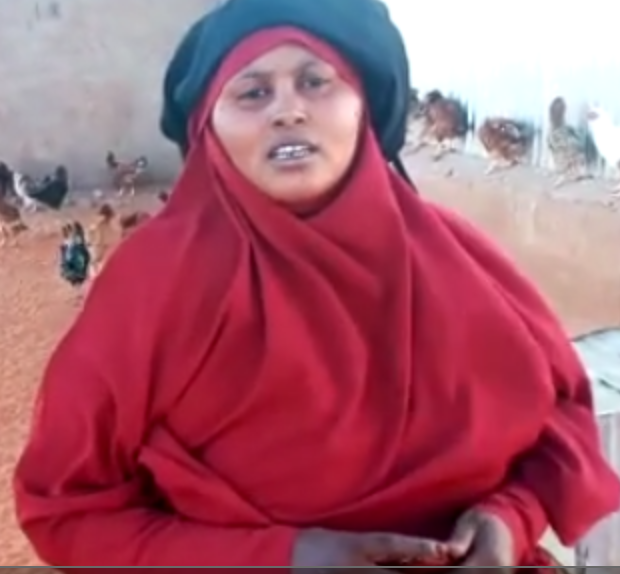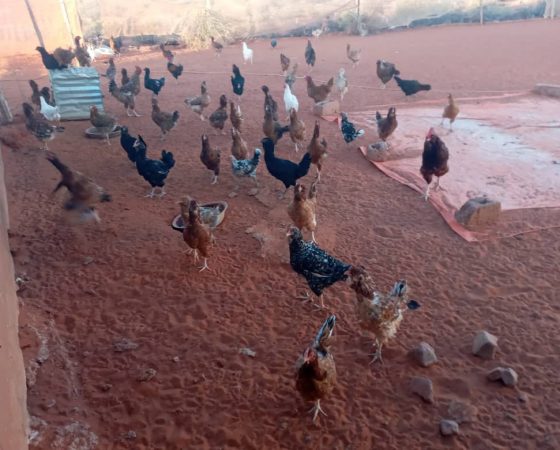
An Interview by Khadjia Muse, on 29 January 2021.
Yuaub Hassan Ahmed owns a chicken farm in the small village of Har Har, Somalia. Last year her proposal was judged by the Har Har Community Development Council as one of the best of nine proposals to establish an enterprise that would meet a need of the community. She was given a few hundred dollars to set up and operate a chicken farm. With that money she built a small chicken house and purchased 120 birds. It has not been easy. In her first year she lost 32 hens to disease. Disease is a very common problem with chickens and many chicken farmers fail, so she has done well by having 80 chickens a year later. At this point her business is showing a small profit and growing.
As Yuaub proudly took me around her chicken farm on a zoom tour, she told me about her life as a chicken farmer. I found her a warm and energetic person who is loving her work. Here are some of the things she told me.

“I love raising chickens. They are great birds and provide a very good business. My family and I very enjoy taking care of our chickens because they will allow us to be financially independent. I want to buy more hens so that I can have more eggs and make more money. Hopefully (Iinshala) that will happen soon.”
I asked her about the issues that are preventing her from growing her business. Here is what she said. “The biggest one is that I cannot find the chicken vaccines and medication for them when they get sick. The closest place to buy medicine for chickens is Kenya and there it costs about $500 dollars for a six-month supply. In addition, because of the COVID-19, the Kenyan border is closed.”
She also said wants to purchase an incubator. “I really need an egg incubator. That would allow me to grow my business by making chicks hatch faster. And it would increase the number of eggs I can sell. Instead of my chicken mothers incubating their chicks, the incubator will do it for me, and my mother chickens can go and lay more eggs. But a good incubator is very expensive. It will take time before I can sell enough eggs to buy one.”
As we ended our tour of her farm, I asked Yuaub how she saw her future. “I think chicken farming is a great business for women, especially Somali women. Because we already know how to operate farms. Most of the Somali people know how to raise all kind of animals, but raising chickens is the best I think. For me, I want to grow my farm, hire more workers and become a big company. “
My next interview will be with last year’s other award winners, a women-owned tailor shop that is sewing and selling women’s clothing.
Khadjia Muse is a Somali volunteering with OLE, living in Belmont MA

